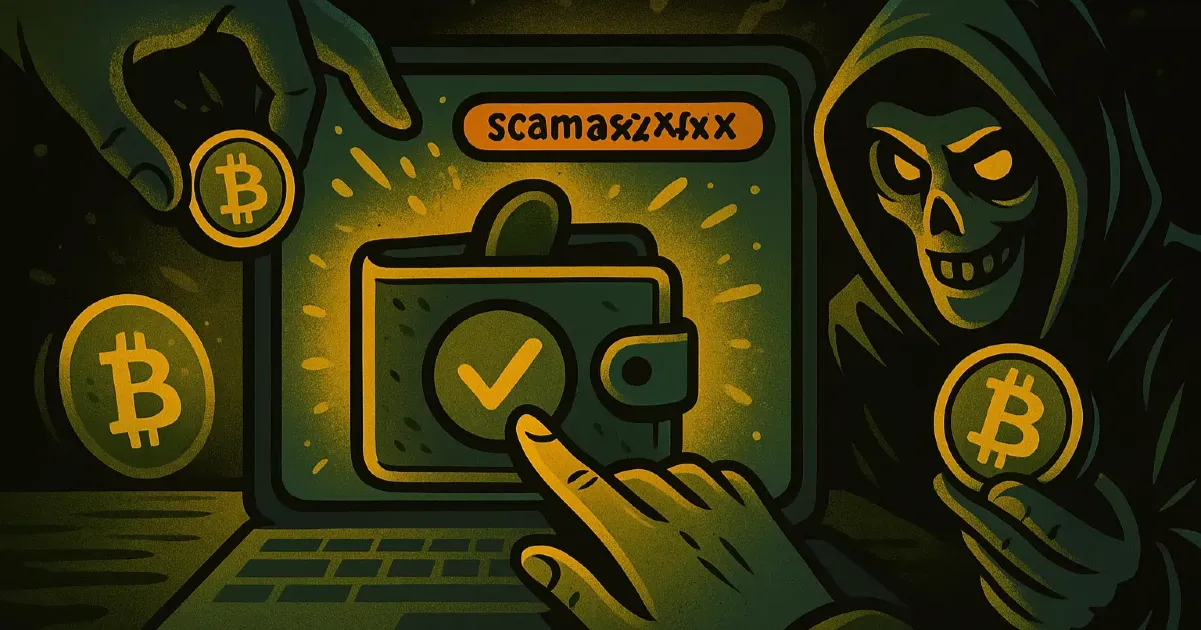Address poisoning attacks in crypto are rising, tricking users into sending funds to fake wallet addresses. Learn how to stay secure and avoid deception.
One of the darker corners of crypto tech is growing more dangerous—address poisoning attacks. You’ve probably heard stories of lost funds or hacked wallets. But this threat is much more insidious…
It doesn’t require hacking private keys or bribes in code. Instead, attackers quietly add malicious wallet addresses to public interfaces, tricking users into sending money to scam accounts.
It’s slick, subtle, and terrifyingly effective.
What Is Address Poisoning Anyway?
Imagine you're copying a public key from a platform—say, a trader’s wallet displayed in a DeFi app or on a blockchain explorer. You paste it to your wallet and send funds. But what if the string you copied had been quietly replaced by someone else’s?
This is the essence of address poisoning attacks. A malicious actor inserts their own address into a public list or cached display. When users paste it, they’re unknowingly sending funds to scammers.
It differs from phishing or malware. The software isn’t infected, and the UI looks normal. It’s the source data that’s been poisoned.
How Attackers Hide in Plain Sight
The clever part? They exploit trust in blockchain explorers and DeFi platforms—both widely used, widely trusted resources.
Take Etherscan name spoofing, for example. It lets creators assign labels like “JohnDoe.eth” to an address. Some attackers abuse that by registering names that mimic popular entities—like “etherfi.eth” instead of “ether.fi.eth”—hoping users rely on labels more than actual addresses.
The result? You think you’re sending to the right address. But it’s just a malicious mimic.
Why Crypto Transaction Security Depends on Vigilance
Crypto has this promise of permissionless exchange and decentralized openness. But open systems are only as secure as the data they present.
If explorers, DeFi UIs, or label services are manipulated, the integrity of the system fails. And now that more money is flowing—through wallets, DEXes, and NFT marketplaces—each compromised address becomes a potential heist on autopilot.
Recent Attacks You Might’ve Missed
There have already been documented cases. In one incident, a popular wallet UI was loaded with spoofed ENS labels. Users copied what looked like the correct address—but saw their funds vanish when they hit ‘send.’
It’s often not because users were careless. The display they trusted was wrong. Not a bug in their wallet, but in the data layer beneath it.
DeFi Platform Risks Are Real
Decentralized finance platforms may think their security ends at smart contract checks. But that’s only half the story.
If your UI or label service is feeding bad addresses, even the most secure contracts can’t stop asset losses. Hackers lock in gains while platforms are still patting themselves on the back.
Having smart contracts audited is crucial. But if the wallet interface is compromised, users can still lose money.
What Users Can Do Right Now
It’s not all doom and gloom. Users can take steps to protect themselves.
Always verify the full address, not just the name or label. Compare the first six and last four characters after pasting. Don’t trust identical subdomains, symbols, or homograph tricks.
Avoid automatic label assignments. And if you use copy-paste, double-check each time—even for repeat transactions.
It may seem annoying, but until crypto transaction security tools catch up, that doubles as your best safeguard.
How Platforms Should Respond
This threat isn’t just on users—it’s on all of us in the ecosystem.
Blockchain explorers and DeFi platforms must conduct stricter validations. Display alternate formats or warnings when names closely mimic high-profile entities. Maybe flag race conditions.
Label registries like ENS need better moderation. Maybe a “verified” checkmark or fraud detection alerts. Token and project data services should vet changes more thoroughly.
The Role of User Education and Awareness
Until systems improve, users need context and education. Simple reminders in wallets and UIs can reduce mistakes. “Did you verify you copied this address?”
Yes, it’s friction. But that friction may protect millions when billions are at risk.
Crypto’s user base has grown fast. But layered security—education + design + technical checks—is still catching up.
What’s Ahead: Steps Toward Safer Transactions
Some tools are emerging. Clipboard monitoring extensions to detect unauthorized changes. Browser warnings when pasting wallet formats. Cross-checking against known labels.
But nothing is standard yet. That means every platform and user plays a part.
The irony here is stark: in decentralized finance, the biggest attack isn't on-chain. It’s off-chain manipulation of human trust. Got everything right in code? That doesn’t help if the address is wrong.
Final Thought: Trust Isn’t Code-Secured
Crypto feels secure because of blockchain’s transparency. But transparency without verification is just window dressing.
Address poisoning attacks crack open the seams of trust. They force us to ask: do we trust the names or the data? The UI, or the code?
Until we harden display layers and human behaviors together, losing tokens to a bad paste remains all too easy.
About the Author
Dan






